|
יום הכיפורים
Yom HaKipurim Yom Kippur – The Day of Atonement is still celebrated by Jews today. It is their most important holiday. It comes on the tenth day of the first month. So it is ten days after their New Year (from the rabbinic tradition not given to Moses and not the technical Jewish New Year), Rosh Hashanah. Thus, it comes at a good time for them to practice self-evaluation and repentance at the "beginning of the year." It is referred to as Shabbat Shabbaton, “Sabbath of Solemn Rest” or “Sabbath of Sabbaths.” Old Testament Scriptures Leviticus 16:2-6 the Lord said to Moses, “Tell Aaron your brother not to come at any time into the Holy Place inside the veil, before the mercy seat that is on the ark, so that he may not die. For I will appear in the cloud over the mercy seat. But in this way Aaron shall come into the Holy Place: with a bull from the herd for a sin offering and a ram for a burnt offering. He shall put on the holy linen coat and shall have the linen undergarment on his body, and he shall tie the linen sash around his waist, and wear the linen turban; these are the holy garments. He shall bathe his body in water and then put them on. And he shall take from the congregation of the people of Israel two male goats for a sin offering, and one ram for a burnt offering. “Aaron shall offer the bull as a sin offering for himself and shall make atonement for himself and for his house. Leviticus 16:20-22 “And when he has made an end of atoning for the Holy Place and the tent of meeting and the altar, he shall present the live goat. And Aaron shall lay both his hands on the head of the live goat, and confess over it all the iniquities of the people of Israel, and all their transgressions, all their sins. And he shall put them on the head of the goat and send it away into the wilderness by the hand of a man who is in readiness. The goat shall bear all their iniquities on itself to a remote area, and he shall let the goat go free in the wilderness. Leviticus 16:29-34 He shall make atonement for the holy sanctuary, and he shall make atonement for the tent of meeting and for the altar, and he shall make atonement for the priests and for all the people of the assembly. And this shall be a statute forever for you, that atonement may be made for the people of Israel once in the year because of all their sins. Procedures For The High Priest To Follow A. Do NOT come at any time into the Holy Place. (16:2). Even the high priest did not have free access to the Holy of Holies, which represented the presence of God. The high priest, like all of the people, was a sinner. And God is absolutely holy. Because of that, there was a separation. “Your iniquities have created a separation between you and God.”(Isaiah 59:2). The veil, which separated the rest of the tabernacle from the holy of holies, was a visible symbol of the gap between God and man. God was so serious about the methods used to worship Him, when two of Aaron’s sons used their own ways to approach God, they were killed. Therefore, unrighteous man can only approach a holy God through the way that He has prescribed. The high priest could only come in to the holy of holies once per year on the day of atonement. And very specific procedures were given for him to follow before he was allowed to approach God. This day, and the procedures to follow are as we will see a picture of the gospel message. Sinful man cannot approach God through his good deeds, devices, or methods. There is a wall separating us from Him that can only be bridged through His mercy. (And it was the mercy seat that the high priest approached.) B. Wear holy linen garments (16:4) – To signify the solemnity of this even the high priest had special garments to wear. It was a solemn and serious thing to approach a holy God. The high priest could not roll out of bed in the morning and just casually or sloppily enter into God’s presence. He had to ready himself. He had to wear the garments approved by God. This showed that he respected God’s commands and his own role in representing God’s people as a mediator. Jesus would later tell a parable, teaching His followers that you cannot attend the wedding feast wearing your own clothes. We cannot approach God by our own efforts, but only by what He provides us. The “holy garments” are an outward picture of that reality. C. Bath – “He shall bathe his body in water and then put them on.” (Leviticus 16:4) Before the high priest could even put on the clothes, he had to first bathe. The physical bath would remove outer dirt and impurities, things unfit to take into God’s presence. That reminds us that a person has to be clean and pure in order to approach God. The outer washing is a picture of that spiritual transaction that has to take as we must be consecrated and cleansed to come in to God’s presence. 1 Peter 3:21 – Baptism, which corresponds to this, now saves you, not as a removal of dirt from the body but as an appeal to God for a good conscience, through the resurrection of Jesus Christ.
That is a reminder that sanctification is an ongoing process. D. Aaron (and future high priests) first offered a bull offering for himself and his family (16:6) – The high priests themselves were sinners. So how could they be representatives of the people and come before the Lord as their mediator? Their own sins had to be dealt with first. So before Aaron could even come into God’s presence or offer a sacrifice for the people, he had to offer one for himself and his own family. E. Two goats (16:7-10) – Next the high priest would take two goats and bring them to the entrance of the tabernacle. Lots would be cast. One would be chosen for the sacrifice. The other would be chosen as the scapegoat. After the other sacrifices were made, the priest would lay his hands on the scapegoat, and confess the sins of Israel, ritually removing them from Israel and putting them onto the innocent animal. That animal would then be sent into the wilderness away from the Israelite camp. It was another physical picture of the spiritual reality taught in Psalm 113:12, ” As far as the east is from the west so far does he remove our transgressions from us.” Their sins were symbolically imputed to the animal who took the suffering for them.
F. Censer with coals from the altar and two handfuls of sweet incense – The high priest was to offer up incense before the Lord INSIDE the veil. The text says, “so that he does not die.” The incense cloud would cover the mercy seat and God would show mercy. Incense often represents prayers in the Bible. And we are reminded from this that Jesus as our high priest also offers intercession for us that we may receive mercy from God. (Romans 8:34) G. Sprinkle blood from the bull offering – In the next step, the priest would take some of the blood of the bull sacrifice and sprinkle it on the mercy seat that is on top of the Ark of the Covenant. The bull’s blood was offered for the high priest and his own family. Only after first receiving forgiveness could he represent the people. He would sprinkle the blood seven times. Seven represented the number of perfection or completeness. So it reminds us that God’s forgiveness is complete. Those whom He cleans, are completely clean. H. The second goat of the sin offering (16:14-16) – After the high priest was cleansed, he would then offer the goat sacrifice for the people, following the same ritual of sprinkling the blood on the mercy seat seven times ” Leviticus 16:17 – “has made atonement for himself and for his house and for all the assembly of Israel.” After sprinkling the mercy seat, he would then go back outside the tabernacle and sprinkle the horns on the altar. Something interesting I noticed is that not only did the people need atoning for. The altar itself, the holy place, and even the tabernacle needed atoning for. ” Leviticus 16:20 “And when he has made an end of atoning for the Holy Place and the tent of meeting and the altar.” That is very revealing. There is nothing holy apart from God Himself. The most beautiful and holy-looking things themselves were unclean.
Atonement meaning –
What word does the sacrificial system bring to your mind? For me, it is TEDIOUS. We have only covered a few of the many regulations of this ONE DAY per year. Rules for bathing. Rules for how to wear clothes. Rules for animals. Rules for sacrifices. Rules for the tabernacle. Rules for going in to the holy place. Rules for sprinkling. And many rules aren’t even mentioned here. Rules for the exact composition of ingredients of the incense. Rules for the exact dimensions and materials for the veil and tent. Also, there had to be atonement for so many people, atonement for the high priest first, atonement for the altar, atonement for the tent, atonement for the holy place (atonement for the things used to bring atonement to others)! This specific ritual had to be done every year, over and over and over and over again. And that is only one day per year. The rest of the year was filled with other sacrifices, repeated again and again and again. Praise God we can read and study this and understand God’s plan. But brothers and sisters, we also praise God that we are not under this anymore. Why? Jesus. All of this was designed to point us to Christ. Symbolism and Pointing to Christ in the NT Hebrews is like the New Testament Leviticus. The writer shows us how God used these Old Testament rituals, which were temporary, to point us to something far greater, which is permanent. Hebrews 9:11-15; But when Christ appeared as a high priest of the good things that have come, then through the greater and more perfect tent (not made with hands, that is, not of this creation) he entered once for all into the holy places, not by means of the blood of goats and calves but by means of his own blood, thus securing an eternal redemption. For if the blood of goats and bulls, and the sprinkling of defiled persons with the ashes of a heifer, sanctify for the purification of the flesh, how much more will the blood of Christ, who through the eternal Spirit offered himself without blemish to God, purify our conscience from dead works to serve the living God. Therefore he is the mediator of a new covenant, so that those who are called may receive the promised eternal inheritance, since a death has occurred that redeems them from the transgressions committed under the first covenant. Hebrews 9:25-26 – Nor was it to offer himself repeatedly, as the high priest enters the holy places every year with blood not his own, for then he would have had to suffer repeatedly since the foundation of the world. But as it is, he has appeared once for all at the end of the ages to put away sin by the sacrifice of himself. Hebrews 10:11-12 – And every priest stands daily at his service, offering repeatedly the same sacrifices, which can never take away sins. But when Christ had offered for all time a single sacrifice for sins, he sat down at the right hand of God. If you have studied Hebrews before, you probably are aware of the theme. The writer’s thesis is simple: Jesus is superior. He goes through many different things and proves that Jesus is superior to them all. Jesus is superior to the angels. Jesus is superior to Moses. He is superior to the priests. He is superior to Old Testament leaders. His sacrifice is superior to the Old Testament sacrifices. His covenant is superior to the Old Covenant. Jesus is far greater than everything else that has come before (or will come after). Those things, however, serve their purpose. What is their purpose? The lead us to Christ. By being compared to Christ, they reveal to us how glorious He is. Think about it this way. If the Old Testament sacrificial system was never established, people would not be aware of how serious their sins are. Nor would they have the same level of gratitude for and awe of Jesus’ once-for-all sacrifice. These things very existence glorify Jesus who outshines them. Jesus could do in one man and in one moment what thousands of men and millions of sacrifices could not accomplish in hundreds of years. When you look specifically at the tabernacle and the Day of Atonement, you see that Jesus is everything. Jesus provides us with the garments to wear, giving us white robes. Jesus’ blood purifies us from our sin. Jesus is the high priest coming into God’s presence and offering a sacrifice on our behalf. And He Himself is that perfect sacrifice. He is the one who tears down the veil. He is the altar. He is the lampstand. He is our intercessor. He is our mediator. He represents us to God as our advocate. And He reveals God to us. There are a couple of differences though between Jesus’ sacrifice and the Day of Atonement. Jesus did not need to purify Himself or offer sacrifices for Himself as Aaron did. He was already perfectly holy. Therefore, He is a better mediator. Also, His sacrifice is better. Once was enough. His blood is absolutely perfect and infinitely valuable. So one sacrifice for all time is sufficient. It never needs to be repeated. Also, He can go into the Holy of Holies at any time because He Himself is holy. He is better than the scapegoat, because the scapegoat only took the people’s sins away (and that symbolically and for a short amount of time). Jesus’ actually imputes His righteousness to us. So not only can He can in to the Holy of Holies at any time, but those in Him can too. We can boldly approach God’s throne of grace directly at any time as His children because of Christ’s work for us. What the people would do? Leviticus 23:26-32 – And the Lord spoke to Moses, saying, “Now on the tenth day of this seventh month is the Day of Atonement. It shall be for you a time of holy convocation, and you shall afflict yourselves and present a food offering to the Lord. And you shall not do any work on that very day, for it is a Day of Atonement, to make atonement for you before the Lord your God. For whoever is not afflicted on that very day shall be cut off from his people. And whoever does any work on that very day, that person I will destroy from among his people. You shall not do any work. It is a statute forever throughout your generations in all your dwelling places. It shall be to you a Sabbath of solemn rest, and you shall afflict yourselves. On the ninth day of the month beginning at evening, from evening to evening shall you keep your Sabbath.” We have looked at the priest’s role, I want to briefly look at what the people would do on this day.
Baptism is a symbol of spiritual cleansing, or purification. How often do you need to clean your house, is once enough? Many often turn comprehensive cleaning into a yearly ritual, “spring cleaning.” If at no other time, once a year the whole house is scoured into shape. There’s a difference between tidying and cleaning. Tidying involves putting shoes on racks, clothes into drawers, books on shelves, and toys in bins. Cleaning requires vacuuming, mopping, spraying, wiping, scrubbing, and magic-erasing. To my eyes, at least, tidying makes a more immediate, obvious difference. But cleaning reaches deeper, and its effects last longer. Did you know that in the law God gave Israel through Moses, God himself instructed the people to clean his house once a year? Leviticus 16: Purging God’s People and Place; Leviticus 16 is a familiar passage, but we often miss this aspect of it. In the instructions this chapter gives for what is often called the Day of Atonement—or Yom Kippur—God appoints cleansing not only for the people, but also for his tabernacle. Why did God’s house need cleaning? At the literary center of Leviticus 16, and at the center of the actions it prescribes for this day, is a sin offering brought into the Holy of Holies, the innermost room of the tabernacle, God’s portable dwelling with his people (Lev. 16:15–19). This was the only time when anyone was permitted to enter the Holy of Holies, and only the high priest was granted entry (cf. Heb. 9:6–7). The high priest was instructed to kill the goat of the sin offering, collect its blood in a bowl, enter the Holy of Holies, and sprinkle the blood over and in front of the mercy seat (Lev. 16:15). To what effect? “Thus he shall make atonement for the Holy Place, because of the uncleannesses of the people of Israel and because of their transgressions, all their sins.” And what happens to the innermost room happens to the whole: “And so he shall do for the tent of meeting, which dwells with them in the midst of their uncleannesses” (Lev. 16:16). Leviticus 16 teaches us sin not only burdens us with guilt, it also stains us and whatever we touch. Sin makes us both unclean and transmitters of uncleanness. Through the tabernacle, God dwelt with the Israelites in a special way. But their sin came between them and God. The people’s sin dirtied God’s house. It threatened to push away the God who graciously chose to dwell with them (Ex. 29:45–46; Lev. 26:11–12). Leviticus 16 teaches us sin not only burdens us with guilt, it also stains us and stains whatever we touch. So, this divinely appointed yearly cleaning of God’s had two effects: the Day of Atonement purged God’s people and his place. We see both in Leviticus 16:33: “He shall make atonement for the holy sanctuary, and he shall make atonement for the tent of meeting and for the altar, and he shall make atonement for the priests and for all the people of the assembly.” Jesus’s Offering in Hebrews: But sin’s problems go even deeper than what Leviticus 16 tells us. Israel’s sins eventually piled up to such an extent that, as the Lord warned in advance, the land “vomited” them out (Lev. 18:24–25). Ultimately, the sins that Israel committed drove the Lord far from his sanctuary (Ezek. 8:6). In judgment, God’s glory departed from his sanctuary (Ezek. 10:1–22). And though God restored his people and enabled them to rebuild their temple, the underlying condition of sin persisted. Persisted, that is, until Jesus came to deliver us. As Hebrews tells us, the fact that the Day of Atonement had to be repeated yearly signals that it wasn’t a final solution to sin: “For since the law has but a shadow of the good things to come instead of the true form of these realities, it can never, by the same sacrifices that are continually offered every year, make perfect those who draw near” (Heb. 10:1). But that is just what Jesus came to do. The fact that the Day of Atonement had to be repeated yearly signals that it was not a final solution to sin. On the cross, Jesus gave his life for ours, paying the price we deserved for our sins. Echoing Leviticus 17:11, Hebrews 9:22 reminds us, “[W]ithout the shedding of blood there is no forgiveness of sins.” In his death, Jesus “bore the sins of many” (Heb. 9:28). And then, on the third day, he rose from the dead, thereby obtaining “the power of an indestructible life” (Heb. 7:16). Jesus then did what the high priest on Yom Kippur only foreshadowed: he entered God’s Holy of Holies in heaven, and presented himself there to the Father as the perfect, sufficient, once-for-all sacrifice. Only in light of what we’ve seen in Leviticus 16 do passages like the following make sense: Thus it was necessary for the copies of the heavenly things to be purified with these rites, but the heavenly things themselves with better sacrifices than these. For Christ has entered, not into holy places made with hands, which are copies of the true things, but into heaven itself, now to appear in the presence of God on our behalf. Nor did he enter to offer himself repeatedly, as the high priest enters the holy places every year with blood not his own, for then he would have had to suffer repeatedly since the foundation of the world. But as it is, he has appeared once for all at the end of the ages to put away sin by his sacrifice. (Heb. 9:24–26; cf. 9:11–12) By entering God’s dwelling in heaven and presenting himself to God, Jesus perfectly purged God’s people and his place. On the cross, Jesus was slain as the spotless victim whose blood purchases our eternal life (Heb. 9:22, 28; cf. 9:15; 13:20). After rising again, he was appointed high priest in the order of Melchizedek (Heb. 5:7–10; 7:11–28). Then, after ascending to heaven (Heb. 4:14; 7:26), Jesus offered himself, his body, his blood, by presenting himself alive to God in the throne room of God’s heavenly tabernacle (Heb. 7:27; 8:1–5; 9:11–14, 23–28; 10:10–14; 12:24). In addition to cleansing God’s dwelling in heaven, Jesus’s heavenly offering obtained for us perfection (Heb. 10:14), redemption (Heb. 9:12), forgiveness (Heb. 10:18), and unhindered access to God forever (Heb. 4:16, 10:19–20). Deepest Deep Clean: Parts of this reading of Hebrews might be new to you. Many Christians have understood Hebrews to locate Jesus’s offering exclusively on the cross. But a deeper understanding of Leviticus 16 can help us understand the book of Hebrews better, too. The high point of the Day of Atonement was what the high priest did in the Holy of Holies. Hebrews itself tells us this when it reminds us that only the high priest could enter the Holy of Holies, “and he but once a year, and not without taking blood, which he offers for himself and for the unintentional sins of the people” (Heb. 9:7). Where and when did the high priest make his offering? When he entered God’s earthly inner sanctum. Where and when did Christ make his offering? When he entered God’s heavenly inner sanctum, after rising from the dead and ascending to heaven. This in no way downplays or diminishes the cross, since the cross is where Jesus gave his life for ours, defeated death, bore the curse of the old covenant, and inaugurated the new (Heb. 2:9, 14–15; 9:15–17; 13:20). By presenting himself alive to God in heaven, Christ presented to the Father what his death on earth accomplished. In heaven, Christ offered to God what he achieved on the cross. This is the cleansing we need far more than any spring cleaning. And it’s the deepest deep clean that can never—and need never—be Lessons Every part of the Bible is useful and rich, even Leviticus! There is great value in studying the Old Testament sacrificial system and feasts (below), but we do not have to go back to the Old Testament law. The rules for this festival and the others we have studied are found in Leviticus. Leviticus gives us the Old Testament law. If you are under the obligation to observe the feasts, then you are under obligation to obey the whole law. We are not. We are under Christ. We are free of this tedious system, which was never intended to be permanent, but which always was intended to point us to something better, that is Christ. Having said that, there is great value in studying this and the other feasts. What?
How to celebrate the Day of Atonement today? A. We don’t need to keep the day of atonement the same way they did in the Old Testament. And in fact, it would be impossible for us to do so since there is no temple or sacrificial system in place today. That was something that had to be repeated over and over every year in order to provide a temporary cover for sins. God designed it to point to something far greater, far more superior. Christ. B. We should remember Christ’s sacrifice every day. We celebrate this all the time because there is nothing more important. C. We should also have times of repentance and self-denial (fasting.) We should do that regularly as a lifestyle. And we should also have times when we set aside to do it. That is one benefit of having a set day for everyone to practice repentance and self-evaluation together. At the same time, all doing it together can become legalistic and less personal. So today, we need to make time to repent on a regular basis. D. We should regularly confess our sins and seek forgiveness. It is an amazing privilege that cleansing is available to us so we should not take it for granted. Today we have seen some of the background for the Day of Atonement. And we have seen that this festival points us squarely to Christ who is superior in every way. If I could leave you with one thing- it is this: I hope you will be in complete awe of Jesus. Prayer Points
The Great Commission Did you know that the phrase ‘Great Commission’ does not appear in the Bible? Bible translators have added headers to the chapters of every book. But they are not in the original text, whether in the Hebrew Old Testament or the Greek New Testament. So, what does it mean? Why his it such a big part of Christianity? Finally, does it have anything to do with God’s chosen people, Israel? What Does Commission Mean? Without diving into a theological discussion, let’s first take a look at the meaning of this phrase. What is a commission? The term itself could be described as a directive, instruction, or charge. Have you heard of commissioning an art piece, like a portrait? That means a task was assigned to a competent person. Commissioning can also mean giving authority, for example putting someone in a higher position, like in the military. A commission can mean a group of people, an official body, that is entrusted with authority or chosen to address a problem. A great example of that is the European Commission, which is the executive body of the European Union. Why do these definitions matter to us? It is because each meaning somehow relates to the instructions that Jesus gave His followers. We were assigned, the Messiah deemed us competent, and gave us authority. What is the Great Commission? Now that we have a good understanding of what the words mean, let’s hear them! The Great Commission is an assignment that God gave the church in our age. Jesus shared it with His friends right before He ascended to Heaven: ‘Go therefore and make disciples of all nations, baptizing them in the name of the Father and of the Son and of the Holy Spirit, teaching them to observe all that I have commanded you. And behold, I am with you always, to the end of the age.’ (Matthew 28:19-20) While there is much more to the church than the Great Commission, it is a concise summary of our task here on earth as the Body of Messiah. It is common for believers to understand this commission primarily as sharing the Gospel. But the task includes much more. In this article we will often turn to a book that may be small in size but is massive in significance. Samuel Whitfield’s “Israel and the Great Commission: How the Great Commission Fulfilled God’s Purpose for Israel and the Nations”dives deep into the topic. Whitfield skillfully unravels the beauty of God’s redemptive plan, Israel’s importance, and our role in it all. How does Israel relate to the Great Commission? Does it really have a place in this great directive that Jesus gave His followers? After all, many Jewish people rejected Jesus in His day (and continue to do so to this day). So, is this relevant to His greatest redemptive calling? By now, you probably know that the answer must be "yes”, but you might still be wondering “how” (or “why”). Past church history in certain circles, mainly the Roman Catholic Church, were led to think that God is finished with a destiny for the Jewish people, because He transferred all His promises to the church (Huh? ouch! This kind of severe misunderstanding is what happens when religious institutions put clergy or hierarchy above all people to equally discern the word of God for themselves). This all changed after the holocaust, and establishment of the state of Israel, when the Roman Catholic Church (which by the way, Catholicism has a lot of bad theology and doesn't represent all collective Christian history) made huge advancements and with Jewish-Christian relations. God's Continuing Plan; The Global Upheaval and its Spiritual Impact Then, the sudden reemergence of the State of Israel defied all odds. It forced the world to deal with both the repercussions of the Holocaust as well as the continuation of a Jewish legacy in the Middle East. Unexpectedly, not only the church but entire nations had to wrestle with the question of Israel, the Jewish people and… God’s sovereignty and unique ongoing purpose for Israel in God’s redemptive plan…” Sharing the same promises and spiritual legacy would be divisive enough. But an even greater challenge looks us in the eye when we acknowledge that we – the Church and Israel – simultaneously share our calling and commission. The Primary Assignment for Children of God Whitfield also points out another major issue in today’s theological approach to the Great Commission: “Many believers see the Great Commission as a New Testament assignment that shifts the focus of the church away from Israel’s story to the nations.” But is that factual? Is the focus on the nations of the earth new? You will find your answer as soon as you turn your attention to one of the first covenants established by God. Our Creator chose Abraham to make a covenant with him, but also with all mankind. God begins His redemptive plan with both Israel and the nations in mind. This means that Israel and the nations are deeply connected in the context of the Great Commission. We are commanded to go to the nations, because that was his plan all along. This profound truth is grounded in Scripture and carried forth by historical events that God put in motion. And He will continue working in every generation, until His Word comes to pass, and His promises come to fruition. The Great Commission in the Old and the New Testament By looking to Abraham – but not only him; think even as far back as Adam or Noah – we are reminded of omnipotence of God. The Old Testament and the New are not separate books and were always meant to be studied together. And so, the themes, including God’s commandments and His blessings, intertwine throughout the entire Bible. There are undeniable links between key passages in the Jewish Tanach (OT) and the Christian New Covenant (NT). “We will discover the Great Commission has its roots in the Old Testament. It is not a new command, but part of the progression of God’s redemptive work. In the same way, Israel’s story does not end with the Old Testament. It’s an ongoing story that depends on the nations to come to fulfillment,” What does the Bible Say? This is always the right course of action. Check everything with the Word of God. Does God's word give us a clear picture of what God thinks or feels about any given matter? ‘All Scripture is breathed out by God and profitable for teaching, for reproof, for correction, and for training in righteousness.’ (2 Timothy 3:16) God revealed Himself, in large part, in the context of relationship. This explains why the Bible is composed of stories and not just attributes of God’s character. We learn them too, but the Creator revealed His heart mainly through His interactions with humanity. In light of that, we need to be honest with ourselves in answering the question, which relationship God established and described in His Word to serve as an example. Is it the nations in general? Or does He choose a specific nation to meet with, talk with and even dine with? As Whitfield put it: “[God] designed His interaction with Israel and the nations to reveal who He is. Israel in particular is a gift of God to the nations to instruct us in the knowledge of who God is and who man is. Therefore, we study Israel to better understand the knowledge of God.” Israel’s Story Is Ultimately about Israel’s God Israel's story is ultimately about Israel’s God, and His glory is at stake in her story: ‘Therefore say to the house of Israel, Thus says the Lord God: It is not for your sake, O house of Israel, that I am about to act, but for the sake of my holy name.’ (Ezekiel 36:22) The chosen people set the context for the life of Jesus. Consequently, it also means that Israel sets the context for the church. And with that, it involves both in the Great Commission. “If we make Israel the primary point of the Bible, we will get off track. 'But if we keep Jesus central in Israel’s story, we will avoid a number of errors and receive the full benefit of Israel’s role in the redemptive story" https://m.youtube.com/watch?fbclid=IwAR25WT0EDsA2nQMzSclQNkd5GewcW2cFOa0N-PHZ95PamvJanmdUZsm96jA&v=h7-IAFogxcM&feature=youtu.be
Have you ever seen the rain, coming down on a Sunny Day? FUNDRAISING UPDATE: - We have purchased the URL's FMBRebuild.com and FortMyersBeachRebuild.com. To give: Use Venmo - Edward-Ryan-14 or PayPal @BeachTalkRadio. Pray For SW Florida Nothing goes better with spending time with God
than a good cup of coffee! Our culture is very interested in the journey of discovering individual identity. Personality tests, dream assessments, even Buzzfeed quizzes are available everywhere you look. It seems like everyone is searching for something to tell them who they are, where they belong and how they relate to the world. The Bible says that all men and women are created in God’s image. Humankind was created to reflect some of God’s attributes. You can look for your identity anywhere, but followers of Jesus are called to find their identity in Him. Our identity is in the one True God Where Do You Find Your Identity? Sit down with a cup of coffee, and learn more about how our creator reveals our identity in him through his word to us! While our world encourages you to look within yourself for your identity, your natural tendency is to search for your identity in external things. One of the first places that you can be tempted to look to is your career. Spending your time and energy pursuing your career can cause you to feel like it is a defining characteristic of who you are. After all, a job that you are dedicated to is likely to take up most of your time and attention. Jobs and careers are closely connected to other places where you can search for your identity, such as financial success and status. But it doesn’t stop there. We also ask our relationship statuses, appearance, grades, and reputation to provide a sense of identity. Any or all of these may feel like solid foundations, but none of them are permanent. Any of them could change without warning. If you base your identity on things like success, wealth, power, physical appearance, and so on, you are setting yourself up for great disappointment. A sudden job loss could leave you questioning your choices in life. One piece of gossip aimed your way could destroy your reputation, even if it is untrue. Your appearance will change as you get older. God, however, is unchanging. He is reliable. He is the same yesterday, today and forever. If you find your identity in Him, you will never ultimately be let down because He has proven time and time again to be trustworthy. It is important, as you define your identity, that God not be just an aspect of who you are, like “I am a Christian,” or ”I am religious,” or “I am spiritual”. Understanding your identity in God starts with understanding who He is, what He says about Himself, and what He says about you. Your identity can be defined by who God is making you to be in His image. How God Sees His Children To be able to understand your identity as a follower of Christ, you need to understand how He sees you. It’s tempting to build your identity on what you accomplish, but this is not a stable foundation. Your true identity is ultimately based on what God has done for you. In the Bible, God tells us often about how He views His people. Let’s take a look at what He says about you, if you received Him as your Lord and Savior. (Learn how to have a personal relationship with God and ask Him to be your Lord and Savior.) You Are Loved In Christ, you are loved. You were created with a purpose. You are not just a convenient carbon copy of someone else. You were created uniquely and with intention. God lovingly designed every detail of your person. Can you imagine the love involved with that intricate design? You Are Chosen In Christ, you are not only loved but chosen. God sent His own Son to earth to die in your place so that you could be included in His family. God was not obligated to choose you based on your performance or credentials. He chose to carry out an intricate plan that involved the death of His own perfect Son, which allowed you the opportunity to be a child of God. You are no mistake. You are chosen and wanted. You Are Forgiven In order to be counted a child of the perfect Father, you had to be free of sin — that is, you had to be perfect with regard to doing right and not doing wrong. That is a tall order considering no one but Jesus was or is perfect and no one can attain perfection by their own effort. However, because Jesus, who was without sin, died the death you should have on the cross, you can be forgiven of sin. What you’ve done wrong is not counted against you, and all that Christ did right is counted for you. This forgiveness allows you to be considered a child of God. Therefore, in God’s eyes, if you have accepted what Jesus did for you, you are completely forgiven. From His perspective, you are without sin. It’s not that you won’t sin, but when He looks at you, He calls you forgiven. That is something on which you can build your identity. You Are Redeemed What does your forgiveness mean? You are redeemed — that is, Christ’s sacrifice has bought you back from the forces of sin and evil that once owned and controlled you and made you His. When God looks at you, He does not see a former sinner. He does not see you in light of who you once were. He sees you as redeemed: a new creation that has been made whole. You do not have to define yourself in light of your past mistakes. God does not do that. You can walk in the identity of someone who is made new in Christ. You Are Adopted What does it mean to be considered a child of God? It means that you have been adopted into His family. You are considered a legitimate child of the God of the universe, having all the rights and standing of Jesus His Son. God sees you as a cherished child who bears His name. Just as earthly adoption is a legally binding process that names you a permanent part of a family, heavenly adoption is just as permanent and binding. You are His child, and He will never take that away. What the Bible Says About Identity in Christ You don’t have to take anyone’s word for it. Actually, God wants you to find out for yourself by reading His Word. It is so important that you go to the Bible to find out how He feels about you. Your identity should never be based on a hope or a guess. God gave us His Word, the Bible, so you can know Him and know who He is making you to be in Him. “You are no longer foreigners and strangers, but fellow citizens with God’s people and also members of his household.” (Ephesians 2:19, New International Version) We are members of His household, not strangers. If you follow Christ, you belong in God’s household and with His people. In this passage, Paul is encouraging followers of Christ to remember that they are all part of one family. They are to be unified with each other. This can only happen if you understand that you are a legitimate child of God. You are part of His family. “God is able to bless you abundantly, so that in all things at all times, having all that you need, you will abound in every good work.” (2 Corinthians 9:8, NIV) As a child of God, you are blessed and provided for. God is able to provide you with everything you need in Christ. He is the Owner of everything and the Giver of all good things. “See what great love the Father has lavished on us, that we should be called children of God! And that is what we are! The reason the world does not know us is that it did not know Him.” (1 John 3:1, NIV) In Christ, you are loved. Your identity is a child of God. This Bible verse comes from a chapter that warns against the temptation to stray from God into sin. You can resist sin by remembering that God has the best for His children. He offers you more than the world ever could. You are complete in His love. “The LORD your God is with you, the Mighty Warrior who saves. He will take great delight in you; in His love He will no longer rebuke you, but will rejoice over you with singing.” (Zephaniah 3:17, NIV) Jesus delights in you. You are not just accepted or put up with. You are welcomed into His family with delight. When correction comes, it lasts for a short time because the goal is for it to help you reflect God’s holy character more accurately. He delights in you so much that He is making you more like Himself day by day. “God made Him who had no sin to be sin for us, so that in Him we might become the righteousness of God.” (2 Corinthians 5:21, NIV) You are God’s righteousness. You are His goodness and rightness because of what Christ did on the cross. This was given to you, and you are called righteous by the Lord of the universe. You can live in light of the righteousness you were given. It not only allows you to approach God with confidence, but it allows you to be an ambassador to others around you. Because your righteousness is not earned but freely given through faith in Jesus, you can share this gift with others and invite them to be God’s righteousness too. “Bear with each other and forgive one another if any of you has a grievance against someone. Forgive as the Lord forgave you.” (Colossians 3:13, NIV) You are forgiven. If you are a follower of Christ, you have become God’s child because the Lord forgave you for the sin you committed against Him. As someone who is forgiven, you can now freely forgive others. God extended grace — that is, undeserved favor — to you. You can extend that grace to others around you. “We are God’s handiwork, created in Christ Jesus to do good works, which God prepared in advance for us to do.” (Ephesians 2:10, NIV) You were created with a purpose. God had specific intentions for your life when He brought you into the world. First and foremost, your purpose is to know Him and glorify Him. Then you can engage in other good works that will bring God glory and grow your own faith. You were saved from great sin. Now, as a child of God, you can walk with God and do great good through His work in you. “If anyone is in Christ, the new creation has come: The old has gone, the new is here!” (2 Corinthians 5:17, NIV) In Christ, you are a new creation. God has made you new. The old things that used to define you have been taken away. God used to identify you as an enemy, but now he knows you as a child. You who were a sinner are now righteous. You are new because through Jesus your sin has been paid for. You have been restored in right standing before God. “You are a chosen people, a royal priesthood, a holy nation, God’s special possession, that you may declare the praises of Him who called you out of darkness into His wonderful light.” (1 Peter 2:9, NIV) You are special to God. You are chosen by Him. This verse comes from a passage that talks about how Christ was rejected by many. But by faith in Jesus through the power of the Holy Spirit, if you trust in Jesus, you are part of His holy, chosen people. You can rid yourself of things that are part of the old you, part of the darkness, such as deceit, hypocrisy, envy, and slander because you have been brought into wonderful light. Obstacles to Believing in Your Identity Even if you know all these things about where a follower of Christ finds their identity, there can often be obstacles standing in the way of believing who you are in Christ. Other sources of identity often stand in the way, such as career, appearance or money. But there are other things that can distract you as well. Past Sin Everyone has made mistakes. Everyone has sinned. If you accept Christ, God forgives you of these things. Psalm 103:12 (NIV) says, “As far as the east is from the west, so far has He removed our transgressions from us.” Transgression is another word for sin or mistakes. God removes your sin from you. You will still often remember your sins, and those memories can make you feel unworthy, keeping you from accepting your true identity. Outside Messages or Experiences You might not just remember what you have done; you may also remember what people have done to you. Maybe you were treated poorly or neglected. Maybe people told you negative things about yourself. The world is broken by sin. There are people who have experienced unspeakable injustice. From gossip to verbal and physical abuse, outside messages are trying to shape your identity every day. Those outside messages can lead you to believe that you are unworthy of what the Bible says is true of you in Christ. False Beliefs As you follow Jesus, you will seek to know Him more. You can do this through time in the Word, through prayer, through talking with friends or a mentor and through gathering together with other believers in worship. As your understanding of God grows, you may recognize flawed beliefs that you held before that do not line up with what you are hearing and learning about your identity now. Maybe you grew up learning that you can lose your salvation. Maybe you thought that there were certain behaviors or sins that disqualify you from receiving Christ’s salvation. There are many false beliefs out there that seem correct but really take away from who God is and what He says. It can be confusing to work through these differences. How Can You Respond? These obstacles are difficult to navigate. It’s easy to believe that these things are legitimate barriers to following Jesus. But by the power of the Holy Spirit, you can overcome these obstacles and live fully in the identity that you were given in Jesus. Repent The word “repent” means that you agree with God. So the first thing you can do to embrace your identity is to agree with Him that you are believing things that are no longer true of you. Bring the things you are struggling with to Him. Admit that they are difficult for you to overcome. Confess that you believe Him when He says that they are no longer true of you. Grieve Many places in scripture encourage believers of Jesus to mourn over their sin. Although your sin no longer defines your identity, you do still experience its effects in your life. Therefore, it is legitimate and even important to grieve the sin that keeps you from truly believing the things Jesus says. You can also grieve the sins that were committed against you and all that those wounds cost you. You can grieve the effect that it had on your relationship with the Lord. Paul was one of the leaders of the early church who helped write the Bible’s New Testament. In a letter to one church, which we now know as the Bible’s book of 1 Thessalonians, he talks about how to mourn for lost loved ones. He helps us to understand how we can grieve well. “Brothers and sisters, we do not want you to be uninformed about those who sleep in death, so that you do not grieve like the rest of mankind, who have no hope” (1 Thessalonians 4:13, NIV). In this passage, “those who sleep in death” is referring to followers of Jesus who have passed away. Paul says that we can grieve that they are no longer here and yet have hope that in Jesus they live in eternity. The same principle applies to grief over sin. You can grieve your own sin and the sin of others, all the while knowing that you have hope in Christ. You are a new creation. You are forgiven and restored in Jesus. Invite the Lord to Change Your Mind When you have confessed and grieved these things, you can ask God to help you believe what is true. He is the one who renews your mind and changes your heart. God is the one who grows your faith and makes you new. Ask Him to help you believe the things that He says of you. Ask Him to continue to make you into the person that He intends you to be in Jesus. He is faithful, and He will do it. Invite Others to Help You God never meant for you to walk with Jesus on your own. He brings people into your life so that you can encourage one another. When you are struggling with past sin or false and discouraging beliefs, share that struggle with a trusted friend. Inviting others to pray for you and remind you of the truth can be so beneficial. A believer that is farther along on their faith journey can provide great insight to you as you walk with Jesus. Consider inviting a fellow believer to mentor you in areas that are a struggle for you. When Christ followers bear one another’s burdens, they not only grow closer to the Lord, but they grow in unity with other Christ followers. Believing God’s Promises
The Bible is full of God’s promises that can encourage us in our faith. After all, faith and hope are dependent on promises – something that we expect, look forward to. A promise is an anchor. If we can trust a promise that we have been given, it will become life-giving. A hopeful expectancy can fill one with joy and motivation. We know we can trust the promises of God. He is not a man, that He would lie (Numbers 23:19). And that in all cases, the words of the Lord stand true, though every man be a liar. (Romans 3:4). When we trust God’s promises, we know that: “Hope does not disappoint, because the love of God has been poured out in our hearts by the Holy Spirit who was given to us” (Romans. 5:5). What does God promise us? The word “promise” can equate to a declaration or commitment. It was binding in Biblical times. And still today, it can be legally binding in certain cultures. According to the English dictionary, a promise gives the receiver of a promise a right to expect or to claim the performance or forbearance of a specified act. Making a promise gives ground for expectation of success, improvement, or excellence. It is an assurance. Unsurprisingly, it gives hope, builds faith, and encourages optimism. In the Hebrew Bible, the word “promise” appears over 50 times, and the New Testament adds another 70+ to that. But that’s just the word alone. If you consider the actual promises, depending on the source, you will discover that there are close to 9,000 promises in the Word of God! Some say it’s more like 30,000, if you include ones made to specific people that were fulfilled. Bible Verses about God’s Promises Thus, considering the vast number of biblical promises, it would be impossible to list them here. The author of The Pilgrims Progress, John Bunyan wrote: “The pathway of life is strewn so thickly with the promises of God, that it is impossible to take one step without treading upon one of them.” What is important to remember, however, is the fact that God’s promises are trustworthy and dependable! Hebrews 10:23 says: “Let us hold fast the profession of our faith without wavering; for He is faithful that hath promised.” Jesus promised that he will never leave us nor forsake us (Hebrews 13:15). And that He is with us unto the end of age (Matthew 28:20). We are promised a place in the world to come, as well as the riches and grace of being seated with Jesus in heavenly places (Ephesians 2:6). We are saved by grace through faith, which is also a promise that God made (Ephesians 2:8). And since there is no falsehood in God, we know that promise is true! We are the work of the Lord’s hands, created for good works which God created before we were born (Ephesians 2:10). God’s Promises in the BibleIn summary, we are promised by God some very foundational things that we could not live without. They are essential to our existence and give us hope for the future. We are promised:
These promises are at the core of our faith. God has so loved the world that He made it clear how we can regain access to His presence. He gave His Son to unite us with Himself and to invite us to His Kingdom. That is the Good News of the Gospel and the great promise that will not be broken. The Promises of God to Israel When we talk about the promises of God, we have to acknowledge an important fact. Before any of His promises can be applied to the Body of Messiah, God’s promises were first given to His people Israel. And it is impressive how often God stresses the fact that His promises are eternal and last forever. The whole story of salvation centers around the history of Israel, her creation, redemption and restoration. God’s might and power is evident in His everlasting promise to Israel (first laid out in Genesis 12:1-3). There, the Lord promises He will make Abram into a great nation and will bless him. Later on, in Deuteronomy 30:3-5, God promises to Israel a specific land – you guessed it! From that moment on, we know it as the Promised Land. The Lord said He would bring his people to the land He chose, and He would make their descendants prosperous. Throughout the books of Moses, we can read promises that the Lord will be Israel’s God, and they will be His special treasure in all of the earth. Israel is God’s very own possession. God also promises that the Messiah would come out of Israel, out of the kingly Davidic line. (Isaiah 11:1, Genesis 3:5, Isaiah 7:14) The Apostle Paul promises that the future hope for Israel’s salvation is sure and that God will make good on His promises (Romans 9-11). We see a revolution after the outpouring of the Holy Spirit. This is when the gentiles are invited to the table, so to speak. A revelation comes over the first church that many of God’s promises are for the whole world. Gentiles are welcomed into the family of God through faith in Jesus. He grants them full access to the throne of grace, just like to the Jewish people (Matthew 8:5-13). Just as God gave special promises to the Jewish people, He also promised a place within His family to the gentiles. They were grafted in to the “wild olive branches” which is Israel and the Jewish people (Romans 11:17). However, the Word of God clearly shows God’s heart for all nations and all people-- long centuries before Jesus was crucified and rose from the dead. Before kings and queens, before God chose Israel, even before God made Abraham His friend, God gave a promise to all mankind. Do you remember the story of Noah? Early on in world history, God miraculously saves Noah and his family. They were the only humans on earth to survive a flood. And that is when God showed up in nature to send a message. He gave mankind a promise in the rainbow. “I set My rainbow in the cloud, and it shall be for the sign of the covenant between Me and the earth. …The rainbow shall be in the cloud, and I will look on it to remember the everlasting covenant between God and every living creature of all flesh that is on the earth. And God said to Noah, “This is the sign of the covenant which I have established between Me and all flesh that is on the earth.” (Genesis 9:13,16-17) In all God’s goodness, we know that He is for us and His promises are true. We see a beautiful confirmation of that in Paul’s letter to Corinthians: "For all the promises of God in Him are Yes, and in Him Amen, to the glory of God through us.” (1 Cor. 1:20). But what does it mean, that His promises are yes and amen? It does not mean that He says yes to any request we may utter towards the heavens. If you’d consider the Greek language, you’d notice that what Paul is essentially saying is that God’s promises are always sure and firm. God’s promises are “yes and amen” because they are unwavering, unchangeable and alive in us. His “Yes” is a declaration of life. And Jesus’ “Amen” is an assurance that what He promised, will come to pass. Whenever we feel like we have lost hope, we can turn to God’s promise that His mercies are new every morning. Jesus is the same yesterday, today and forever, which is another promise of God. We can put our daily hope in an unchangeable Messiah. When we pray the promises of God over ourselves, they strengthen our faith. We find in them the assurance of our identity in Jesus. Which in turn enables us to stand firm against evil and the works of the devil. The author of Hebrews 11:1 tells us that, “…Faith is the substance of things hoped for, the evidence of things not seen.” This being so, we hold on to the substance of hope… that which we do not see, through the promise of the Word. We can hold God’s promises to the highest standard and expectation. Because His plans and purposes are unchanging, and He himself, does not change. Anything we face in life, or in the world at large, is not outside of God’s plan or foreknowledge. On this side of heaven, we face opposition for our faith. Both from within our sinful nature and from the external pressures of the world. But we are strengthened in our inner man when we pray through the promises of God. We have the strength in our heart and stand firm in our confidence in Messiah. And place in our identity in Him as redeemed, sanctified, victorious and seated with him in heavenly places. “But if the Spirit of Him who raised Jesus from the dead dwells in you, He who raised Christ Jesus from the dead will also give life to your mortal bodies through His Spirit who dwells in you.” (Romans 8:11) https://ourdailybread.org/article/jesus-said-i-am-the-way-the-truth-and-the-life/ I am the way and the truth and the life is one of the seven “I Am” statements of Jesus. On the last night before His betrayal and death, Jesus was preparing His disciples for the days ahead. For over three years, these men had been following Jesus and learning from His teaching and example. They had placed their hopes in Him as the Messiah, the promised deliverer, yet they still didn’t understand how He was going to accomplish that deliverance. After the Last Supper, Jesus began speaking about His departure, which led to questions from His disciples. In John 13:33, Jesus said, “My children, I will be with you only a little longer. You will look for me, and just as I told the Jews, so I tell you now: Where I am going, you cannot come.” This prompted Peter to ask where He was going (verse 36). Peter and the others did not understand that Jesus was speaking of His death and ascension to heaven. Jesus’ response was, "Where I am going, you cannot follow now, but you will follow later.” Peter was still misunderstanding and declared that he would follow Jesus anywhere and even lay down His life if necessary. As Jesus patiently continued to teach His disciples, He began speaking more plainly about heaven, describing the place He was going to prepare for them (John 14:2–3). Then Jesus said, “You know the way to the place where I am going” (verse 4). Speaking for the others, Thomas said they did not know where He was going, so how could they know how to follow Him there? It was in answer to this question that Jesus uttered one of the seven famous “I am” statements. I am – In the Greek language, “I am” is a very intense way of referring to oneself. It would be comparable to saying, “I myself, and only I, am.” Several other times in the Gospels we find Jesus using these words. In Matthew 22:32 Jesus quotes Exodus 3:6, where God uses the same intensive form to say, “I am the God of Abraham, and the God of Isaac, and the God of Jacob.” In John 8:58, Jesus said, “Truly, truly I say unto you, before Abraham was, I am.” The Jews clearly understood Jesus to be calling Himself God because they took up stones to stone Him for committing blasphemy in equating Himself with God. In Matthew 28:20, as Jesus gave the Great Commission, He gave it emphasis by saying, “I am with you always, to the end of the age.” When the soldiers came seeking Jesus in the garden the night before His crucifixion, He told them, “I am he,” and His words were so powerful that the soldiers fell to the ground (John 18:4–6). These words reflect the very name of God in Hebrew, Yahweh, which means “to be” or “the self-existing one.” It is the name of power and authority, and Jesus claimed it as His own. The way – Jesus used the definite article to distinguish Himself as “the only way.” A way is a path or route, and the disciples had expressed their confusion about where He was going and how they could follow. As He had told them from the beginning, Jesus was again telling them (and us) “follow me.” There is no other path to heaven, no other way to the Father. Peter reiterated this same truth years later to the rulers in Jerusalem, saying about Jesus, “Salvation is found in no one else, for there is no other name under heaven given to men by which we must be saved” (Acts 4:12). The exclusive nature of the only path to salvation is expressed in the words “I am the way.” The truth – Again Jesus used the definite article to emphasize Himself as “the only truth.” Psalm 119:142 says, “Your law is the truth.” In the Sermon on the Mount, Jesus reminded His listeners of several points of the Law, then said, “But I say unto you . . .” (Matthew 5:22, 28, 32, 34, 39, 44), thereby equating Himself with the Law of God as the authoritative standard of righteousness. In fact, Jesus said that He came to fulfill the Law and the prophets (Matthew 5:17). Jesus, as the incarnate Word of God (John 1:1) is the source of all truth. The life – Jesus had just been telling His disciples about His impending death, and now He was claiming to be the source of all life. In John 10:17–18, Jesus declared that He was going to lay down His life for His sheep, and then take it back again. He spoke of His authority over life and death as being granted to Him by the Father. In John 14:19, He gave the promise that “because I live, you also will live.” The deliverance He was about to provide was not a political or social deliverance (which most of the Jews were seeking), but a true deliverance from a life of bondage to sin and death to a life of freedom in eternity. In these words, Jesus was declaring Himself the great “I Am,” the only path to heaven, the only true measure of righteousness, and the source of both physical and spiritual life. He was staking His claim as the very God of Creation, the Lord who blessed Abraham, and the Holy One who inhabits eternity. He did this so the disciples would be able to face the dark days ahead and carry on the mission of declaring the gospel to the world. Of course, we know from Scripture that they still didn’t understand, and it took several visits from their risen Lord to shake them out of their disbelief. Once they understood the truth of His words, they became changed people, and the world has never been the same. So how do we follow Him today? The same way the disciples did long ago. They heard the words of Jesus and believed them. They took His words and obeyed them. They confessed their sins to Jesus as their Lord and God. They believed that He died to take the punishment of their sins and rose from the dead to give them new life. They followed His example and command to tell others the truth about sin, righteousness, and judgment. When we follow Him in “the way,” we can be assured of following Him all the way to heaven. Earlier in the epistle, Paul speaks of the “good conscience” as opposed to the seared conscience. “Advancing God’s work,” he says, comes by faith, and love “comes from a pure heart and a good conscience and a sincere faith” (1 Timothy 1:4–5). A good conscience has the capability to tell right from wrong and is free from guilt. A person with a good conscience maintains his integrity. He enjoys fellowship with those who "walk in the light, as [Jesus] is in the light” (1 John 1:7). The lies of the devil are anathema to the one with a good conscience. Rather than follow the lies of apostates, he will “fight the battle well, holding on to faith and a good conscience” (1 Timothy 1:18–19). The New Testament concept of conscience is more individual in nature and involves three major truths. First, conscience is a God-given capacity for human beings to exercise self-evaluation. Paul refers several times to his own conscience being “good” or “clear” (Acts 23:1; 24:16; 1 Corinthians 4:4). Paul examined his own words and deeds and found them to be in accordance with his morals and value system, which were, of course, based on God’s standards. His conscience verified the integrity of his heart. Second, the New Testament portrays the conscience as a witness to something. Paul says the Gentiles have consciences that bear witness to the presence of the law of God written on their hearts, even though they did not have the Mosaic Law (Romans 2:14-15). He also appeals to his own conscience as a witness that he speaks the truth (Romans 9:1) and that he has conducted himself in holiness and sincerity in his dealings with men (2 Corinthians 1:12). He also says that his conscience tells him his actions are apparent to both God and the witness of other men’s consciences (2 Corinthians 5:11). Third, the conscience is a servant of the individual’s value system. An immature or weak value system produces a weak conscience, while a fully informed value system produces a strong sense of right and wrong. In the Christian life, one’s conscience can be driven by an inadequate understanding of scriptural truths and can produce feelings of guilt and shame disproportionate to the issues at hand. Maturing in the faith strengthens the conscience. This last function of the conscience is what Paul addresses in his instructions regarding eating food sacrificed to idols. He makes the case that, since idols are not real gods, it makes no difference if food has been sacrificed to them or not. But some in the Corinthian church were weak in their understanding and believed that such gods really existed. These immature believers were horrified at the thought of eating food sacrificed to the gods, because their consciences were informed by erroneous prejudices and superstitious views. Therefore, Paul encourages those more mature in their understanding not to exercise their freedom to eat if it would cause the consciences of their weaker brothers to condemn their actions. The lesson here is that, if our consciences are clear because of mature faith and understanding, we are not to cause those with weaker consciences to stumble by exercising the freedom that comes with a stronger conscience. The word of God tells us that the Holy Spirit will convict the world of sin (John 16:8). To help us understand what the conviction of sin is, we can look at what it is not. First, it is not simply a guilty conscience or even shame over sin. Such feelings are naturally experienced by almost everyone. But this is not true conviction of sin. Second, conviction of sin is not a sense of trepidation or a foreboding of divine punishment. These feelings, too, are commonly experienced in the hearts and minds of sinners. But, again, true conviction of sin is something different. Third, conviction of sin is not merely knowledge of right and wrong; it is not an assent to Scripture’s teaching about sin. Many people read the Bible and are fully aware that the wages of sin is death (Romans 6:23). They may know that “no immoral, impure or greedy person . . . has any inheritance in the kingdom of Christ and of God” (Ephesians 5:5). They may even agree that “the wicked shall be turned into hell, and all the nations that forget God” (Psalm 9:17). Yet, for all their knowledge, they continue to live in sin. They understand the consequences, but they’re far from being convicted of their sins. The truth is, if we experience nothing more than a pang of conscience, anxiety at the thought of judgment, or an academic awareness of hell, then we have never truly known the conviction of sin. So, what is real conviction, the kind the Bible speaks of? The word convict is a translation of the Greek word elencho, which means “to convince someone of the truth; to reprove; to accuse, refute, or cross-examine a witness.” The Holy Spirit acts as a prosecuting attorney who exposes evil, reproves evildoers, and convinces people that they need a Savior. To be convicted is to feel the sheer loathsomeness of sin. This happens when we’ve seen God’s beauty, His purity and holiness, and when we recognize that sin cannot dwell with Him (Psalm 5:4). When Isaiah stood in the presence of God, he was immediately overwhelmed by his own sinfulness: "Woe to me! . . . I am ruined! For I am a man of unclean lips . . . and my eyes have seen the King, the LORD Almighty” (Isaiah 6:5). To be convicted is to experience an utter dreadfulness of sin. Our attitude toward sin becomes that of Joseph who fled temptation, crying out, “How could I do this great evil and sin against God?” (Genesis 39:9). We are convicted when we become mindful of how much our sin dishonors God. When David was convicted by the Holy Spirit, he cried out, “Against you, you only, have I sinned and done what is evil in your sight” (Psalm 51:4). David saw his sin primarily as an affront to a holy God. We are convicted when we become intensely aware of the wrath it exposes to our souls (Romans 1:18; Romans 2:5). When the Philippian jailer fell at the apostles’ feet and cried, “Sirs, what must I do to be saved?” he was under conviction (Acts 16:30). He was certain that, without a Savior, he would die. When the Holy Spirit convicts people of their sin, He represents the righteous judgment of God (Hebrews 4:12). There is no appeal of this verdict. The Holy Spirit not only convicts people of sin, but He also brings them to repentance (Acts 17:30; Luke 13:5). The Holy Spirit brings to light our relationship to God. The convicting power of the Holy Spirit opens our eyes to our sin and opens our hearts to receive His grace (Ephesians 2:8). We praise the Lord for the conviction of sin. Without it, there could be no salvation. No one is saved apart from the Spirit’s convicting and regenerating work in the heart. The Bible teaches that all people are by nature rebels against God and hostile to Jesus Christ. They are “dead in trespasses and sins” (Ephesians 2:1). Jesus said, “No one can come to Me unless the Father who sent Me draws him” (John 6:44). Part of that “draw” to Jesus is the conviction of sin. Psalm 89:5–7 says, “The heavens praise your wonders, LORD, your faithfulness too, in the assembly of the holy ones. For who in the skies above can compare with the LORD? Who is like the LORD among the heavenly beings? In the council of the holy ones God is greatly feared; he is more awesome than all who surround him.” These verses present a divine council: heavenly beings referred to as “the council of the holy ones.” Psalm 82:1 also indicates that “God has taken his place in the divine council” (Psalm 82:1, ESV) The “divine council” is also called the “great assembly” (NIV), “heaven’s court” (NLT), and “His own congregation” (NASB). This divine council could also be referenced in Nehemiah 9:6, which says, “You alone are the LORD; You have made heaven, The heaven of heavens, with all their host, The earth and everything on it, The seas and all that is in them, And You preserve them all. The host of heaven worships You” (NKJV). The “host” of the “heaven of heavens” are most likely angelic beings. God is the Lord of hosts (Psalm 24:10; Isaiah 44:6). The God who presides in the heavenly council is sovereign over all, including the spiritual beings in His divine council. Other passages of Scripture describe scenes that could be interpreted as a meeting of the divine council. In Job 1:6, a conclave is held in heaven: “One day the angels came to present themselves before the Lord.” In 1 Kings 22:19, the prophet Micaiah relates a vision: “I saw the Lord sitting on his throne with all the multitudes of heaven standing around him on his right and on his left.” Micaiah goes on to describe how the spiritual beings there suggested various means of accomplishing God’s will, and God chose one spirit to carry out the task. In Daniel 4:17, the angels present a decision made by the divine council: “This decision is by the decree of the watchers, and the sentence by the word of the holy ones, in order that the living may know that the Most High rules in the kingdom of men, gives it to whomever He will, and sets over it the lowest of men” (NKJV). The divine council was in God’s presence and was given the task of deciding Nebuchadnezzar’s judgment and communicating the verdict to Daniel in a dream. l God does not need a divine council to give Him ideas or to approve His decisions. He is the omniscient God Almighty. In His wisdom, God has created a divine council to stand in His presence and graciously allows them to participate in various judgments and decrees. It is a wonder that God allows created beings to be privy to His ways and even have input in His plan. The divine council is privileged to participate in God’s plans, and, to an extent, so are we: “The prayer of a righteous person is powerful and effective” (James 5:16). And God chooses to use us as ministers of reconciliation in the sharing of the gospel: “Therefore go and make disciples of all nations, baptizing them in the name of the Father and of the Son and of the Holy Spirit” (Matthew 28:18–19; cf. 2 Corinthians 5:18). Revelation 19:10 "The testimony of Jesus is the spirit of prophecy” ' book of Revelation is a book of prophecy given by Jesus Christ The term revelation refers to a revealing or the making known of something that was previously unknown. Revelation is like pulling back a veil to show what’s behind it or unwrapping a present to see what’s inside. What is prophecy, then? Simply put, prophecy is communication from God to mankind. Some prophecy can be speaking of future events, and other prophecy might not be. Prophets were utilized as a mouthpiece for God-- they listened to God and then conveyed God’s message to the masses. Some examples of prophets are Elijah, Isaiah, Moses, and Jonah. In the context of Revelation 19:10, John has seen the fall of the evil world system called Babylon the Great (Revelation 18). A great multitude in heaven is celebrating and singing praise to God because of that judgment (Revelation 19:1–3) and because it is now time for the wedding supper of the Lamb (verses 6–8). An angel says to John, "Blessed are those who are invited to the wedding supper of the Lamb!” (Revelation 19:9). At this proclamation, John falls to worship at the feet of the angel who is communicating this prophecy, but the angel insists John rise to his feet, for he is but “a fellow servant” (Revelation 19:10; cf. Colossians 2:18). In response to John’s wrongful worship, the angel says, “See that you do not do that! . . . Worship God! For the testimony of Jesus is the spirit of prophecy” (Revelation 19:10, NKJV). It is critical to understand that this statement is a response to John’s intention to worship the angel. Because of the construction of the clause in the original language (Greek), there are three common understandings of the testimony of Jesus is the spirit of prophecy: Following the angel’s command to John, we ought to worship God alone. We are to worship not the purveyor of the message but the Source of the message. (cf. John 17:3; 1 Timothy 1:17; 6:15; 1 Samuel 7:4). The name Faithful and True expresses the total trustworthiness, reliability, and constancy of Jesus Christ. The title reveals His character and makes known His words and works. In Revelation 19:11, John sees a vision of Jesus as the exalted King of kings leaving heaven to return to earth: “I saw heaven standing open and there before me was a white horse, whose rider is called Faithful and True. With justice he judges and wages war.” This picture of Christ’s second coming at the end of the age shows Jesus no longer as the peaceful, humble servant riding on a lowly donkey (John 12:12–15). Now He is the victorious King, charging forth like a conquering war general, leading His troops into battle (Revelation 19:14). In this vivid portrayal, John identifies Jesus by four different titles, beginning with Faithful and True. It is the first and only time this name of Jesus appears in Scripture. The second title is unknown to us (Revelation 19:12); the third is the Word of God (verse 13); the fourth is King of kings and Lord of lords (verse 16). The word for “Faithful” in the original language means “characterized by steadfast affection or allegiance,” and the word translated “True” means “truthful or characterized by expressing the truth.” The nature of Jesus Christ—His whole being—exudes faithfulness and truth. Earlier, in Revelation 3:14, Jesus called Himself the “faithful and true witness” in His letter to the church in Laodicea. Faithful and True is who Jesus Christ is. In His first coming to earth, Jesus proved Himself to be faithful to the mission and will of God His Father: “I have brought you glory on earth by finishing the work you gave me to do” (John 17:4; see also John 5:30; Hebrews 3:6; Luke 4:43). Never once did the Lord give in to the temptation to sin (Hebrews 4:15–16), from the time Satan tempted Him in the wilderness (Matthew 4:1–11; Mark 1:12–13; Luke 4:1–13) until His death on the cross (Matthew 16:21–23; 26:36–44; Mark 8:31–33; 14:32–42; Luke 22:40–46). From the day Isaiah foretold His coming, Christ’s faithfulness was known (Isaiah 11:5; 42:3). As a young man (Luke 2:49) and throughout His ministry, Jesus was a faithful and obedient servant to His Father God (John 4:34; 6:38; 8:29; 12:27; 14:31). Jesus is consistently the same “yesterday and today and forever” (Hebrews 13:8). Others will wear out, change, or perish, but Jesus Christ remains the same for all eternity (Hebrews 1:11–12). Jesus, who said, “I am the way and the truth and the life,” is the very embodiment of truth (John 14:6). He came from His Father “full of grace and truth” (John 1:14). And His promise of eternal life is true: “Truly, truly, I say to you, whoever hears my word and believes him who sent me has eternal life. He does not come into judgment, but has passed from death to life” (John 5:24, ESV; see also John 6:47). Because of the fidelity inherent in His character, Jesus is faithful toward His followers in every circumstance. “If we are faithless, he remains faithful, for he cannot disown himself,” declares 2 Timothy 2:13 see also Matthew 28:20; 2 Thessalonians 3:3; Hebrews 10:23 Faithful and True is a fitting title for Jesus Christ our King, and He calls His followers to emulate His faithfulness and truth (Revelation 14:12; Hebrews 10:23). The entire book of Revelation conveys a message to the church of Jesus Christ to be faithful and true, just as He is Faithful and True. In Revelation 19:11, when John sees the gates of heaven open, the One who has been Faithful and True from ages past appears at the end of time to wage His final battle. Jesus Christ comes with justice to judge and wage war, and He will triumph over the enemies of God! The outcome is sure because He is Faithful and True. He will do what He has promised to do. He shall defeat the devil once and for all. He will destroy the power of death, wiping away every sorrow, tear, and pain from the hearts of His devoted followers (Isaiah 25:8; 1 Corinthians 15:54; Hebrews 2:14; Revelation 20:14). https://youtu.be/YPWHJC7PyYY “Greater love has no one than this: to lay down one’s life for one’s friends.” John 15:13
Imperfect people befriending imperfect people is complicated and hard, but Jesus assures us it’s possible to love each other as He loved us. Jesus came to earth, love incarnate, on a mission to define love, walk out love, and die out of love. . . for us. -Through- Jesus, we embrace this greater love and allow it to flow through our lives, by His power. What Is the 'No Greater Love Is This' Spoken of in John 15? This phrase occurs during Jesus’ sermon about the Vine and the Branches. Christ Jesus used the illustration of a good gardener pruning plants so they produce good fruit. “I am the true vine, and my Father is the gardener,” John recorded Jesus saying, "The vine and the vineyard were old sacred imaged in Judaism,” “The vine represented the covenant people of God, planted and tended by him so that Israel would produce fruit.” The love Christ introduced is "agape" love. This love, according to Christianity.com, “refers to a pure, willful, sacrificial love that intentionally desires another’s highest good.” Contrary to the way the world loves selfishly, Jesus loved selflessly and taught His followers to aim for the same. This type of love is almost indescribable, a product of the very character of God, who is perfect love. God prunes our hearts, sanctifying us daily as we draw closer to Him. When we choose to live life within the love of Christ, we are able to accept and receive the gift of God’s love. Submitting our plans, we instead allow our lives on earth to serve as a conduit to spread the love of Christ to the people He has purposefully placed in our paths. “Jesus laid down his life for his friends,” John Piper explains, “Jesus is the pattern and the power of that love. And he can be those for us, even though we are sinners, because he removed the wrath of God by laying down his life for us.” There is no greater love than the love the Father has for us. To send His one and only Son to sacrifice His life on our behalf is the greatest love story of all time. John 3:16 reminds us, He came for the world. Jesus died, willingly and sacrificially, once for all. We talk a lot about unity in our world today and strive for peace. "Jesus didn’t cast Christianity as a glorified clique,” explains Marshall Segal, "but as a contagious love that compels people to come and see.” Jesus loves us selflessly, having chosen to die for us knowing fully we would not always love Him in return. God’s love is not fickle or fragile. Everything He does and allows is meant to draw us closer to Him. His love is a product of -who He is- Yahweh, Abba. Who spoke the world into existence and knit each of us in our mother’s womb. We spend a lot of time worrying about self-worth even though God proclaims we are worthy (Psalm 139). Jesus, the living Word of God, was there at the beginning and now sits at the right hand of the Father. The Holy Spirit, living in every believer, translates the aches and praises of our hearts to God in prayer and faithfully counsels and comforts us. This type of love calls us to lay down our lives, as Jesus did His. Not necessarily on a cross, but through one we carry to Him daily as we lay down our sins, guilt, and shame. We submit our pre-conceived notions and societal expectations for His will in our lives; our selfish desires for His Kingdom purposes. The gift of grace, salvation, and forgiveness reigns in lives surrendered to Christ. It isn’t easy. There’s no ticket to an easy life on this earth. But Jesus said, “I have told you this so that my joy may be in you and that your joy may be complete.” (John 15:11) What Does it Mean to Lay Down Your Life for Others? "But the fruit of the Spirit is love, joy, peace, forbearance, kindness, goodness, faithfulness, gentleness and self-control. Against such things there is no law.” Galatians 5:22-23 The Bible has a lot to say about friendship. Jesus modeled it perfectly. Without a guarantee of reciprocation, He poured His life out for His friends. His focus was on forgiveness, friendship, and the fruit of walking in love with Him. The Bible is clear that Jesus is the model for selfless love; this is shown by Jesus giving up His own innocent life to save undeserving sinners. The fruits of the Spirit, products of a godly life, are fostered through the grace given to us through salvation in Christ, alone. To be selfless. In a world consumed with self-care, self-love, and self-confidence, Christ calls us to run a race in the opposite direction. He calls us to be God-reliant, to love God and others, and embrace His provision and allow Him to sustain us. Laying down our lives for others is to live a Christ-centered life, and foster Christ-centered relationships. To listen to one another, learn about, remember and encourage one another. God purposefully places us in the generation we live in, amongst the people in our lives. When we notice who they are, through the filter of Jesus, we are able to love them as we are called to. Laying down our lives is refusing to worry about what tomorrow will bring because we understand only God knows. It’s trusting Him to prepare, lead, and provide for us as we work for His Kingdom. How to Receive and Reciprocate “Greater Love”“ As the Father has loved me, so I have loved you. Now remain in my love. If you keep my commands, you will remain in my love, just as I have kept my Father’s commands and remain in his love. I have told you this so that my joy may be in you and that your joy may be complete. My command is this: Love each other as I have loved you. Greater love has no one than this: to lay down one’s life for one’s friends. You are my friends if you do what I command. I no longer call you servants, because a servant does not know his mater’s business. Instead, I have called you friends, for everything I learned from my Father I have made known to you. You did not choose me, but I choose you and appointed you so that you might go and bear fruit- fruit that will last- and so that whatever you ask in my name the Father will give you. This is my command: Love each other.” John 15: 9-17 Jesus gave us a blueprint to “greater love.” It has very little to do with us and everything to do with who He is. We are called to submit to His authority in our lives, and obediently follow the truth of God’s Word. “The war between flesh and spirits is a war of allegiance,” Derek Cazel explains, “If we would give in to the flesh, our definition of love would follow the world’s definition, namely, that nothing is greater than our desires and ourselves.” Jesus accomplished what we never could through His life on earth, His sacrificial death, and miraculous resurrection and ascension to heaven. There is power in the name of Jesus, yet He calls us His friends. Shortly after His sermon about the Vine and the Branches, Jesus prayed before He began His final leg of the journey to the cross. The prayer, recorded in John 17, captures greater love in action. Jesus prayed His life and death would glorify God; He prayed for His followers, and then He prayed for everyone else. All of us. Those who would follow. He prayed we would all find unity in Him. Unity requires a greater love. It requires the power and love of Jesus, and the supernatural force He wields within lives surrendered to His call, and God’s sovereign will. "The believer has no fruitfulness apart from union and fellowship with Christ,” “A branch out of contact with the vine is lifeless.” In addition to Jesus’ specific claims about Himself, His disciples also acknowledged the deity of Christ. They claimed that Jesus had the right to forgive sins—something only God can do—as it is God who is offended by sin (Acts 5:31; Colossians 3:13; Psalm 130:4; Jeremiah 31:34). In close connection with this last claim, Jesus is also said to be the one who will “judge the living and the dead” (2 Timothy 4:1). Thomas cried out to Jesus, “My Lord and my God!” (John 20:28). Paul calls Jesus “great God and Savior” (Titus 2:13) and points out that prior to His incarnation Jesus existed in the “form of God” (Philippians 2:5-8). God the Father says regarding Jesus: “Your throne, O God, will last forever and ever” (Hebrews 1:8). John states that “in the beginning was the Word, and the Word was with God, and the Word [Jesus] was God” (John 1:1). Examples of Scriptures that teach the deity of Christ are many (see Revelation 1:17, 2:8, 22:13; 1 Corinthians 10:4; 1 Peter 2:6-8; Psalm 18:2, 95:1; 1 Peter 5:4; Hebrews 13:20), but even one of these is enough to show that Christ was considered to be God by His followers.
Jesus is also given titles that are unique to YHWH (the formal name of God) in the Old Testament. The Old Testament title “redeemer” (Psalm 130:7; Hosea 13:14) is used of Jesus in the New Testament (Titus 2:13; Revelation 5:9). Jesus is called Immanuel—“God with us”—in Matthew 1. In Zechariah 12:10, it is YHWH who says, “They will look on me, the one they have pierced.” But the New Testament applies this to Jesus’ crucifixion (John 19:37; Revelation 1:7). If it is YHWH who is pierced and looked upon, and Jesus was the one pierced and looked upon, then Jesus is YHWH. Paul interprets Isaiah 45:22-23 as applying to Jesus in Philippians 2:10-11. Further, Jesus’ name is used alongside God’s in prayer “Grace and peace to you from God our Father and the Lord Jesus Christ” (Galatians 1:3; Ephesians 1:2). This would be blasphemy if Christ were not deity. The name of Jesus appears with God’s in Jesus’ commanded to baptize “in the name [singular] of the Father and of the Son and of the Holy Spirit” (Matthew 28:19; see also 2 Corinthians 13:14). Actions that can be accomplished only by God are credited to Jesus. Jesus not only raised the dead (John 5:21, 11:38-44) and forgave sins (Acts 5:31, 13:38), He created and sustains the universe (John 1:2; Colossians 1:16-17). This becomes even clearer when one considers YHWH said He was alone during creation (Isaiah 44:24). Further, Christ possesses attributes that only deity can have: eternality (John 8:58), omnipresence (Matthew 18:20, 28:20), omniscience (Matthew 16:21), and omnipotence (John 11:38-44). Now, it is one thing to claim to be God or to fool someone into believing it is true, and something else entirely to prove it to be so. Christ offered many miracles as proof of His claim to deity. Just a few of Jesus’ miracles include turning water to wine (John 2:7), walking on water (Matthew 14:25), multiplying physical objects (John 6:11), healing the blind (John 9:7), the lame (Mark 2:3), and the sick (Matthew 9:35; Mark 1:40-42), and even raising people from the dead (John 11:43-44; Luke 7:11-15; Mark 5:35). Moreover, Christ Himself rose from the dead. Far from the so-called dying and rising gods of pagan mythology, nothing like the resurrection is seriously claimed by other religions, and no other claim has as much extra-scriptural confirmation. There are at least twelve historical facts about Jesus that even non-Christian critical scholars will admit: 1. Jesus died by crucifixion. 2. He was buried. 3. His death caused the disciples to despair and lose hope. 4. Jesus’ tomb was discovered (or was claimed to be discovered) to be empty a few days later. 5. The disciples believed they experienced appearances of the risen Jesus. 6. After this, the disciples were transformed from doubters into bold believers. 7. This message was the center of preaching in the early Church. 8. This message was preached in Jerusalem. 9. As a result of this preaching, the Church was born and it grew. 10. Resurrection day, Sunday, replaced the Sabbath (Saturday) as the primary day of worship. 11. James, a skeptic, was converted when he also saw the resurrected Jesus. 12. Paul, an enemy of Christianity, was converted by an experience which he believed to be an appearance of the risen Jesus. Even if someone were to object to this specific list, only a few are needed to prove the resurrection and establish the gospel: Jesus’ death, burial, resurrection, and appearances (1 Corinthians 15:1-5). While there may be some theories to explain one or two of the above facts, only the resurrection explains and accounts for them all. Critics admit that the disciples claimed they saw the risen Jesus. Neither lies nor hallucinations can transform people the way the resurrection did. First, what would they have had to gain? Christianity was not popular and it certainly did not make them any money. Second, liars do not make good martyrs. There is no better explanation than the resurrection for the disciples’ willingness to die horrible deaths for their faith. Yes, many people die for lies that they think are true, but people do not die for what they know is untrue. In conclusion, Christ claimed He was YHWH, that He was deity (not just “a god” but the one true God); His followers (Jews who would have been terrified of idolatry) believed Him and referred to Him as God. Christ proved His claims to deity through miracles, including the world-altering resurrection. No other hypothesis can explain these facts. Yes, the deity of Christ is biblical. Scripture is clear that Jesus is God (John 20:28; Titus 2:13; Hebrews 1:8), and it is equally clear that He is truly human (Romans 1:2–4; 1 John 4:2–3). Jesus claimed the divine name (John 8:58) and did things that only God can do (Mark 2:1–12; Luke 7:48–50). But Jesus also displayed the weaknesses and vulnerabilities common to humanity (Luke 19:41; John 19:28). The belief that Jesus is both God and man is of fundamental importance. The apostle Paul wrote that an affirmation of the divinity of Jesus is required to be saved (Romans 10:9), and the apostle John provided a sober warning that those who deny Christ’s true humanity are promoting the doctrine of antichrist (2 John 1:7). The Triune God of the Bible has existed and reigned from all eternity, and the second Person of the Trinity, the Son, took on human flesh at a particular point in time (Luke 1:35; Hebrews 1:5). God the Son added a sinless human nature to His eternally existent divine nature. The result was the Incarnation. God the Son became a man (John 1:1, 14). Hebrews 2:17 gives the reason that Jesus had to be both God and man: “He had to be made like them, fully human in every way, in order that he might become a merciful and faithful high priest in service to God, and that he might make atonement for the sins of the people.” The Son of God took on human flesh to provide redemption to those under the law (Galatians 4:4–5). At no time did Jesus ever cease to be God. Although He was made fully human, there was never a point when He abrogated His divine nature (see Luke 6:5, 8). It is equally true that, after becoming incarnate, the Son has never ceased to be human. As the apostle Paul wrote, “For there is one God, and there is one mediator between God and men, the man Christ Jesus” (1 Timothy 2:5, emphasis added). Jesus is not half-human and half-divine. Rather, He is Theanthropos, the God-man. The Lord Jesus Christ is one eternally divine Person who will forever possess two distinct yet inseparable natures: one divine and one human. "The Word" (Logos) in John 1 is referring to Jesus. Jesus is the total Message—everything that God wants to communicate to man. The first chapter of John gives us a glimpse inside the Father/Son relationship before Jesus came to earth in human form. He preexisted with the Father (verse 1), He was involved in the creation of everything (verse 3), and He is the "light of all mankind" (verse 4). The Word (Jesus) is the full embodiment of all that is God (Colossians 1:19; 2:9; John 14:9). But God the Father is Spirit. He is invisible to the human eye. The message of love and redemption that God spoke through the prophets had gone unheeded for centuries (Ezekiel 22:26; Matthew 23:37). People found it easy to disregard the message of an invisible God and continued in their sin and rebellion. So the Message became flesh, took on human form, and came to dwell among us (Matthew 1:23; Romans 8:3; Philippians 2:5–11). Jesus told a parable in Luke 20:9–16 to explain why the Word had to become flesh. “A man planted a vineyard, rented it to some farmers and went away for a long time. At harvest time he sent a servant to the tenants so they would give him some of the fruit of the vineyard. But the tenants beat him and sent him away empty-handed. He sent another servant, but that one also they beat and treated shamefully and sent away empty-handed. He sent still a third, and they wounded him and threw him out. “Then the owner of the vineyard said, ‘What shall I do? I will send my son, whom I love; perhaps they will respect him.’ But when the tenants saw him, they talked the matter over. ‘This is the heir,’ they said. ‘Let’s kill him, and the inheritance will be ours.’ So they threw him out of the vineyard and killed him. What then will the owner of the vineyard do to them? He will come and kill those tenants and give the vineyard to others.” In this parable, Jesus was reminding the Jewish leaders that they had rejected the prophets and were now rejecting the Son. The Logos, the Word of God, was now going to be offered to everyone, not just the Jews (John 10:16; Galatians 2:28; Colossians 3:11). Because the Word became flesh, we have a high priest who is able to empathize with our weaknesses, one who has been tempted in every way, just as we are—yet He did not sin (Hebrews 4:15). |
|
|
|
|
|
|
|
|
Paragraph. Clicca qui per modificare.
|
Paragraph. Clicca qui per modificare.
|
Paragraph. Clicca qui per modificare.
|
Paragraph. Clicca qui per modificare.
|
Paragraph. Clicca qui per modificare.
|
|



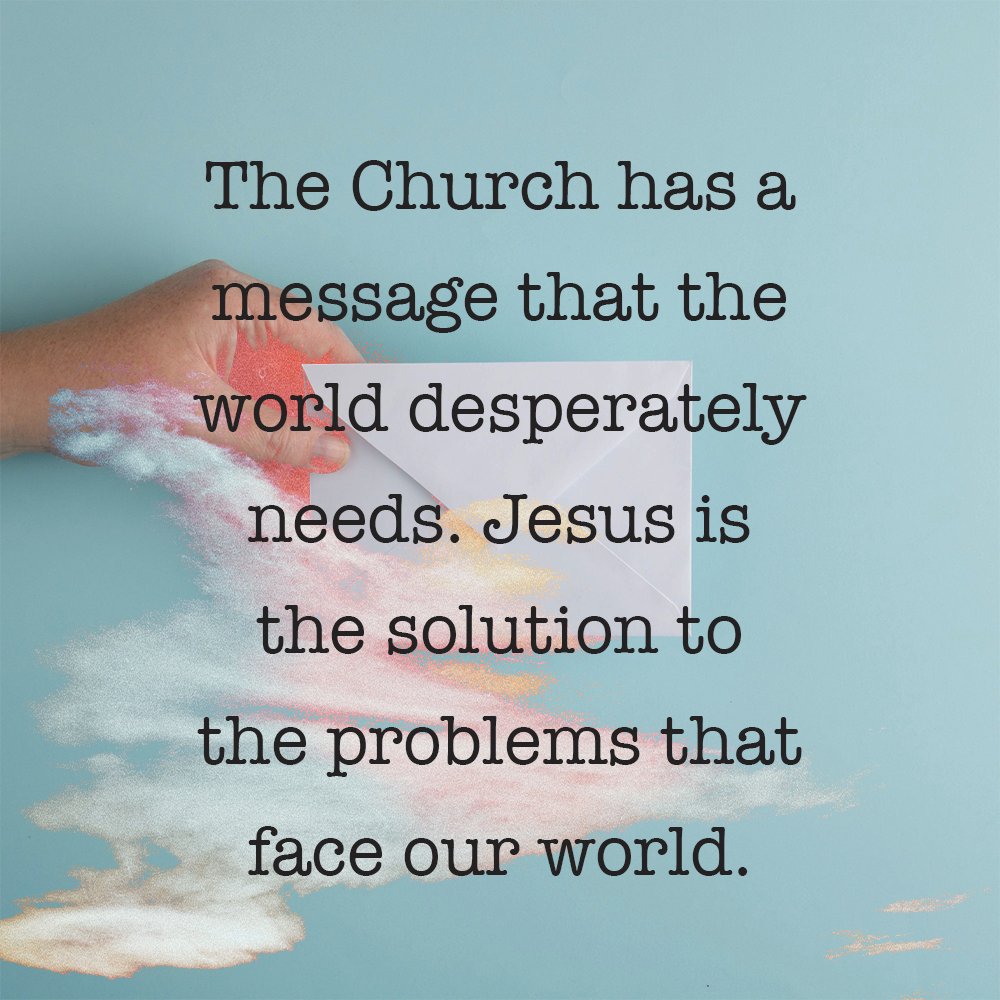
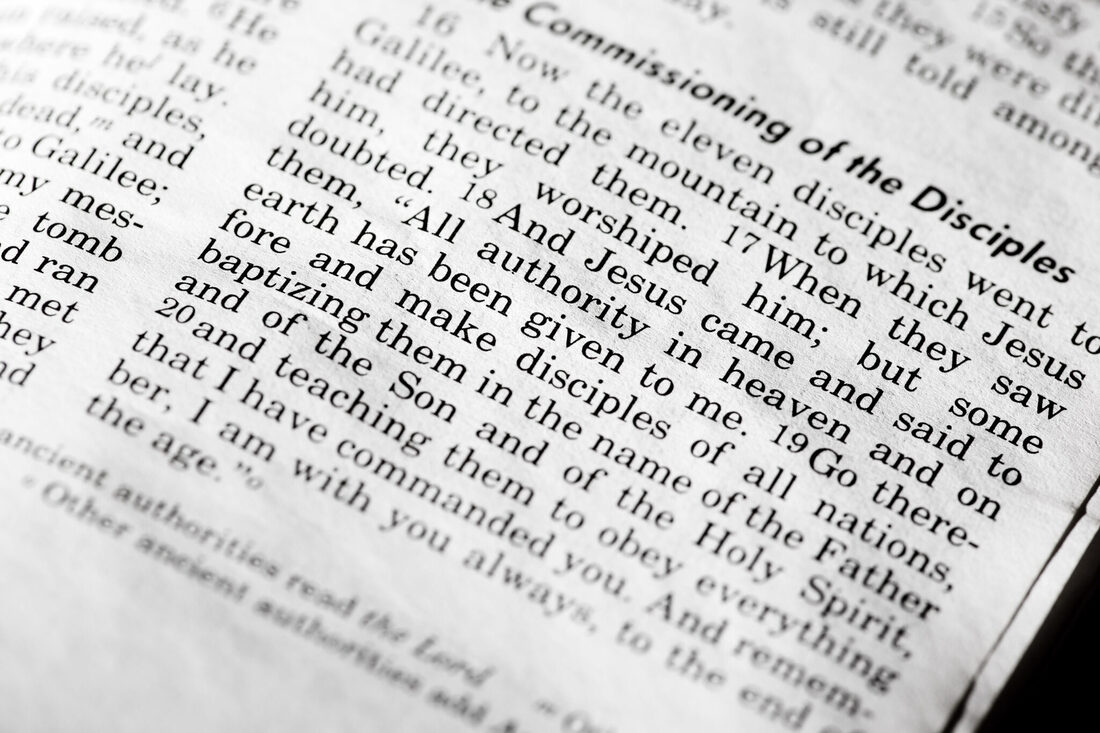









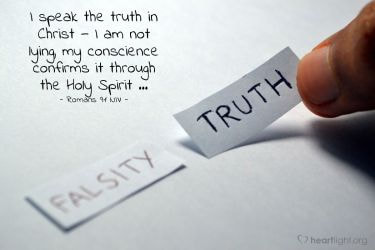


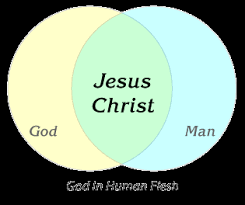
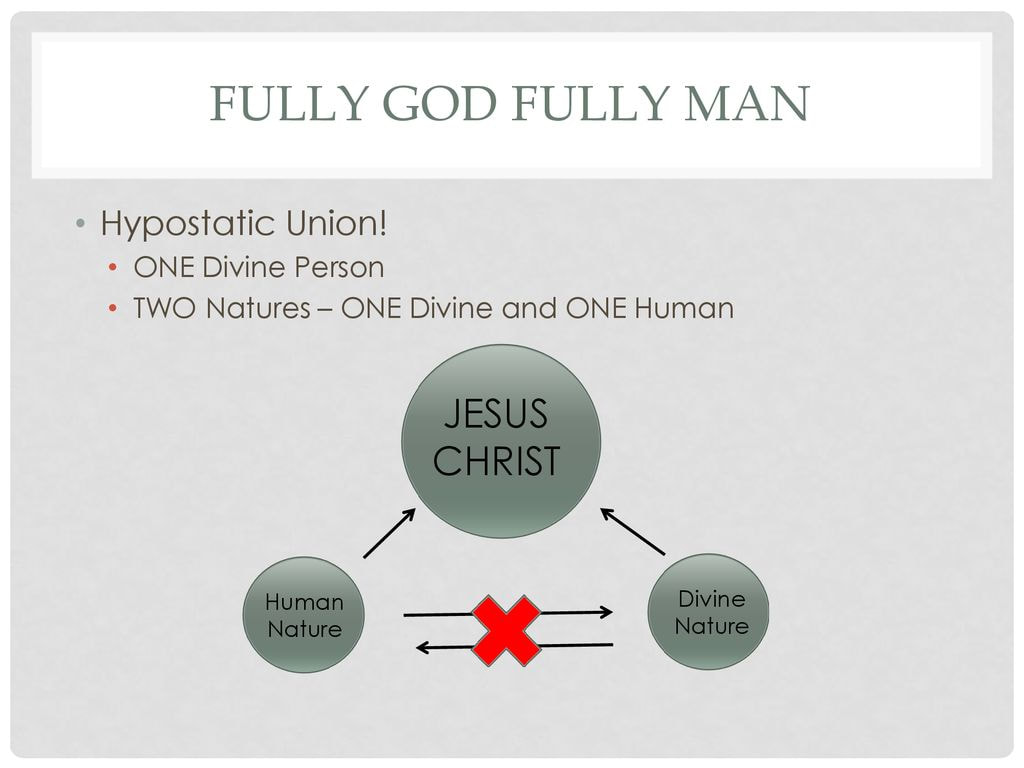

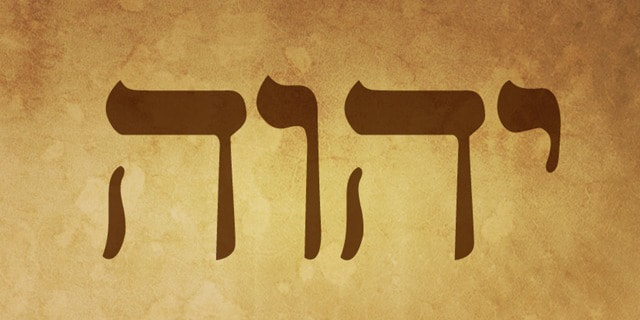

 RSS Feed
RSS Feed





















































